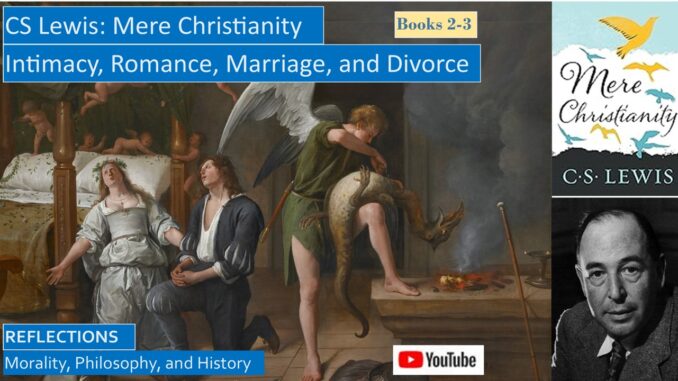
What were CS Lewis’ reflections on Intimacy and Christian marriage and divorce in his Mere Christianity?
Should Christians seek to love themselves?
Should Christian couples be able to divorce, and if so, when?
Can Christians marry for love, or should they only marry to raise a family?
Should we talk about sex, or would it be spiritually wiser to refer to intimacy?
YouTube video for this reflection: https://youtu.be/fZcOip3WGe8
Tobit, which is part of the Catholic Scripture but is included in the Protestant Apocrypha, is a favorite book of young couples. In this delightful book, a favorite of young Catholic couples, Tobias and Sarah are newlyweds who kneel and pray to God before climbing into their wedding bed, asking God to protect them from evil before they consummate their marriage.
In this story, in prior years, a demon had killed several young men who had fallen in love with Sarah. After Tobias and Sarah pray at the foot of their bed, the angel Raphael is seen binding the demon, protecting the newlyweds so they will have a long and happy marriage with many children.[1]
Previously, we reflected on how Christians in England and Europe faced the fascist and Nazi threats during World War II, and how these experiences influenced the decrees of Vatican II. We also reflected on whether CS Lewis used St Augustine and the other Church Fathers as sources.
Facing the Nazi Menace: CS Lewis’ Mere Christianity and Viktor Frankl’s Memoirs on Auschwitz, Books 1-4
https://seekingvirtueandwisdom.com/facing-the-nazi-menace-cs-lewis-mere-christianity-and-viktor-frankls-mans-search-for-meaning/
https://youtu.be/x-9FeH9Gyng
Preparing the Way for Vatican II: CS Lewis’ Mere Christianity, Books 1-4
https://seekingvirtueandwisdom.com/preparing-the-way-for-vatican-ii-cs-lewis-mere-christianity/
https://youtu.be/udJQzmqst34
Was CS Lewis a Closet Catholic? Reflections on Mere Christianity, Books 2-4
https://seekingvirtueandwisdom.com/was-cs-lewis-a-closet-catholic-reflections-on-his-mere-christianity/
https://youtu.be/ksWomcEg8C0
Good Friday, Easter, and Trinity: CS Lewis’ Mere Christianity, Narnia, & St Augustine’s Confessions, Books 1-4
https://seekingvirtueandwisdom.com/good-friday-easter-and-trinity-cs-lewis-mere-christianity-narnia-st-augustines-confessions/
https://youtu.be/c71ygBqvPoY
This is the final video on CS Lewis’ discussions of the Cardinal Virtues, and Theological Virtues of Faith, Hope, and Charity, and also reflections on forgiveness, pride, and envy.
Morality and the Cardinal Virtues in CS Lewis’ Mere Christianity: Prudence, Temperance, and Justice, Books 1-3
https://seekingvirtueandwisdom.com/mere-morality-and-the-cardinal-virtues-in-cs-lewis-mere-christianity-prudence-temperance-and-justice/
https://youtu.be/Djbzmeb2nc0
CS Lewis’ Mere Christianity: Forgiveness, Pride, and Envy. Can Pride Ever Be Good?, Book 3
https://seekingvirtueandwisdom.com/cs-lewis-mere-christianity-forgiveness-pride-and-envy-can-pride-ever-be-good/
https://youtu.be/Pmu6hzU5RaQ
Faith, Hope, Charity, and Love in CS Lewis’ Mere Christianity: The Theological Virtues, Book 3
https://seekingvirtueandwisdom.com/faith-hope-charity-and-love-in-cs-lewis-mere-christianity-the-theological-virtues/
https://youtu.be/avesW8whRSQ
CS Lewis’ Mere Christianity: Intimacy, Romance, Marriage, and Divorce, Books 2-3
https://youtu.be/fZcOip3WGe8
CS LEWIS AND VICTORIAN SENSIBILITIES
CS Lewis lived in the aftermath of the Victorian era, she reigned from 1837 to 1901.[2] He observed that the Victorian prudishness had been relaxed in the younger generation of his day, and that older people should not assume that the young are corrupt, just as the young should refrain from calling their elders prudes and puritans.
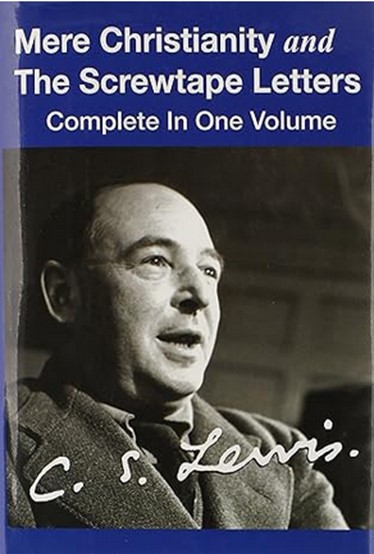


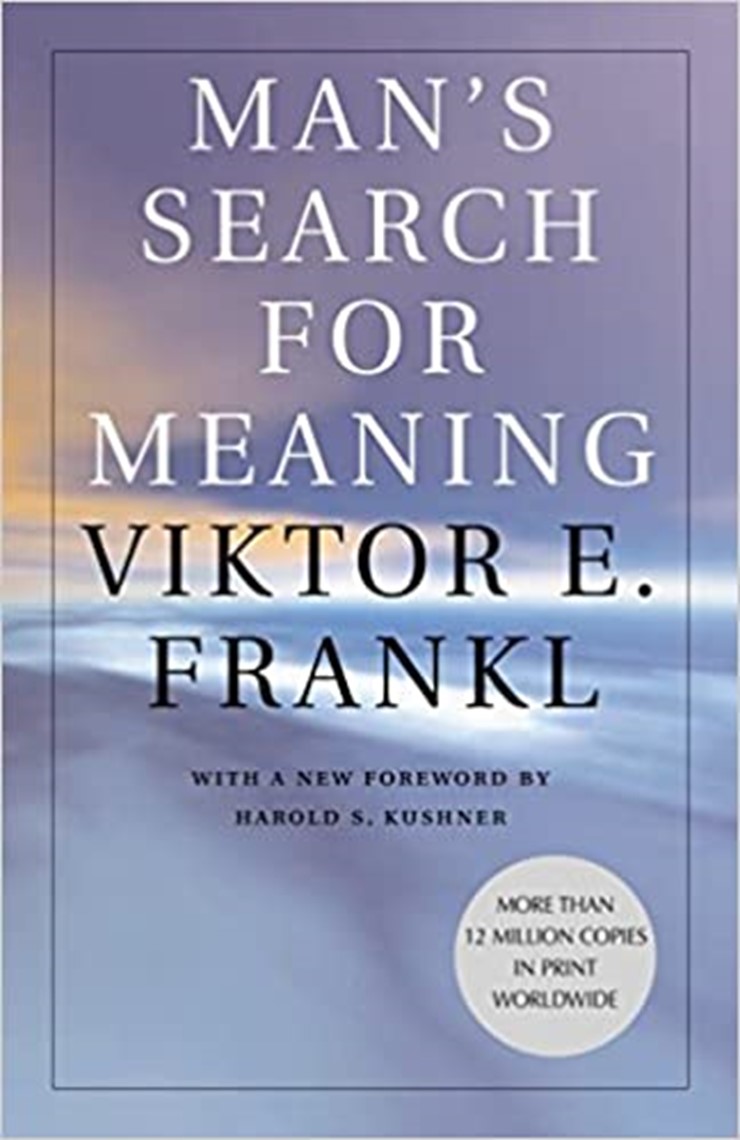
CS Lewis provides good advice: You should have a “real desire to believe all the good you can of others and to make others as comfortable as you can, and that will solve most problems.” He also points out that Christian chastity should not be confused with modesty, though modesty is desirable.[3]
But CS Lewis still has Victorian sensibilities, he habitually calls evil badness, as in this quote: “Goodness is itself: badness is only spoiled goodness.” “Evil is a parasite, not the original thing.”
CS Lewis continues: “Pleasure, money, power, and safety are all, as far as they go, good things. The badness consists in pursuing them by the wrong method, or the wrong way, or too much.” “You can be good for the mere sake of goodness: you cannot be bad for the mere sake of badness.”[4]
CS LEWIS ON INTIMACY IN RELATIONSHIPS
CS Lewis writes: “Some people think that the fall of man had something to do with sex, but that is a mistake. The story in the Book of Genesis rather suggests that some corruption in our sexual nature followed the fall and was its result, not its cause.”[5] He even says that “the old Christian teachers said that if man had never fallen, sexual pleasure, instead of being less than it is now, would actually have been greater.” [6] I doubt St Augustine said this, and I cannot imagine which Church Father would have said this, so I wish CS Lewis would tell us who his ancient sources are.
CS Lewis does directly quote St Augustine from his Confessions, but does not attribute this famous passage: “A famous Christian long ago told us that when he was a young man he prayed constantly for chastity; but years later he realized that while his lips had been saying, ‘Oh Lord, make me chaste,’ his heart had been secretly adding, ‘But Please don’t do it just yet.’”[7]
St Augustine’s Confessions: Manichaeism, NeoPlatonic Philosophy, and Monica’s Prayers, Books 3, 4, and 5
https://seekingvirtueandwisdom.com/st-augustines-confessions-manichaeism-neoplatonic-philosophy-and-monicas-prayers/
https://youtu.be/ydskqlgZSrE
CS Lewis says that “modern people are always saying that sex is nothing to be ashamed of,” noting that there is nothing wrong with the pleasure that comes with intimacy.
Personally, though I do not disagree with CS Lewis’ teachings on sexual morality, I disagree with the common usage, I prefer to speak of intimacy rather than sex. Your partner should not be treated as an object, they should be treated with dignity, and there is always a danger that when we seek pleasure from our partners, that we will treat them as objects.
In the Hebrew and in the transliteral translations of Leviticus, there are multiple commandments that exhort us: THOU SHALT NOT UNCOVER THE NAKEDNESS OF anyone who is not your wife, and this is not a doctrinal issue since these same commandments in Exodus use concise words that are similar to English usage that mean having sex with, in more or less vulgar or clinical terms. This language in Leviticus emphasizes that even illicit and immoral physical relationships can lead to either deep emotional attachments, or deep emotional resentments, and trauma, so we always prefer to use the phrase, being physically intimate, because this also suggests that the cousin of physical intimacy is emotional intimacy in a caring relationship.
We reflected on this and other similar topics in our video explaining my personal philosophy, which parallels our channel philosophy.
Our Reflections on Morality, Philosophy, and History: Ancient and Modern Classics
http://www.seekingvirtueandwisdom.com/our-philosophy-for-this-blog-reflections-on-ancient-and-modern-classics/
https://youtu.be/Si0TsO5bNr0
This concept of treating your loved one with dignity and respect is a core teaching of Pope John Paul II’s post-Vatican II Theology of the Body. This theology encourages romantic love between committed partners, in addition to the classical Catholic teaching that the purpose of marriage is to bear children. Perhaps the main reason for this evolution of doctrine is the stunning medical advances in modern times, no longer do women literally risk their lives bearing children.
Likewise, CS Lewis warns of the dangers of lust. “Our warped natures, the devils who tempt us, and all the contemporary propaganda for lust, combine to make us feel that the desires we are resisting are so ‘natural and healthy’ that it is almost perverse and abnormal to resist them.” We see this view in our culture, in our movies, in our romance novels, everywhere around us.
CS Lewis warns us that, “like all powerful lies, this is based on a truth” that intimacy can be healthy and normal. “The lie consists in the suggestion that any sexual act to which you are tempted at the moment is also healthy and normal.”
CS Lewis does not caution us about a related lie I have often heard: that all intimacy in marriage is healthy. A husband can treat his wife as a sexual object, denying her dignity, just as easily as a single man can treat his girlfriend as a sexual object, denying her dignity. This is a tendency all couples should guard against.
CS Lewis closes this chapter with the observation that sins of passion can be less dangerous spiritually than sins of destruction. “If anyone thinks that Christians regard unchastity as the supreme vice, he is quite wrong. The sins of the flesh are bad, but they are the least bad of all sins.”
CS Lewis continues, “All the worst pleasures are purely spiritual: the pleasures of putting other people in the wrong, of bossing and patronizing and spoiling sport, and back-biting, the pleasures of power and hatred.” The Diabolical self is more dangerous than the Animal self. CS Lewis concludes, “That is why a cold, self-righteous prig who goes regularly to church may be far nearer to hell than a prostitute. But, of course, it is better to be neither.”[8]
CS LEWIS ON WHETHER CHRISTIANS CAN DIVORCE
CS Lewis observed that “Christianity teaches that marriage is for life. There is, of course, a difference between different Churches: some do not admit divorce at all; some allow it reluctantly in very special cases.” All Churches view divorce as a desperate remedy, “it is more like having both your legs cut off than it is like dissolving a business partnership.” But all Churches “disagree with the modern view that it is a simple readjustment of partners, to be made whenever people feel they are no longer in love with one another, or when either of them falls in love with someone else.”
CS Lewis continues, “As GK Chesterton pointed out, those who are in love have a natural inclination to bind themselves by promises. Love songs all over the world are full of vows of eternal constancy. The Christian law is not forcing upon the passion of love something which is foreign to that passion’s own nature: it is demanding that lovers should take seriously something which their passion of itself impels them to do.”
CS Lewis asks, Why “keep two people together if they are no longer in love? There are several sound, social reasons: to provide a home for their children, to protect the woman, who has probably sacrificed or damaged her own career by getting married, from being dropped whenever the man is tired of her.”
The world has changed since the World War II era of CS Lewis, as divorce is far more common, even in the Catholic Church. When people live twice as long, they will have twice as long to get on each other’s nerves. For many years, I was active in a divorce support ministry. On rare occasion, young mothers will ponder whether they should divorce their ex-husband. Rather than preach to them, my preference was to simply ask this simple question: How is he with the kids?
The implication is that if the father is good with the children, give him the benefit of the doubt. Do the kids like to spend time with him? Does he look forward to spending time with the kids? If your children dislike their dad, that is not good. The Church teaches that marriage is for the sake of the children, and that is a practical truth.
DIVORCED AND SEPARATED SUPPORT GROUP MINISTRIES
What divorce support ministries are available? One ministry is Divorce Care, which is a non-denominational divorce support group ministry that distributes a thirteen-session set of DVDs with Christian counselors. After the DVD is played, those in the support group are asked to share. Both Protestant and Catholic Churches run these support groups.
The most common misconception is that a divorce ministry is somehow immoral, that it does not try to heal broken marriages, that it ignores the teachings of the Church. The truth is, of all the years I was active in the divorce support ministry, only once did estranged spouses reconcile immediately. Quite often, reconciliation is impossible either because he is a serial cheater, or because physical abuse is occurring. No matter what the ex-wife says, you just never know.
The unequivocal message we need to convey is: If either the wife or the children are suffering physical abuse, Jesus wants them to IMMEDIATELY leave and go to a safe place. Jesus may not like divorce, but often separation is necessary. It is very problematic to trust that men who are abusers will ever change, in part because the fear women feel in these situations is so debilitating and humiliating.
A second warning for those contemplating divorce is that second marriages can be problematic for a similar reason: based on my observations, the proportion of stepfathers who molest their stepdaughters is astoundingly high, likely above ten or even twenty percent, though it would be impossible to obtain accurate statistics on this. IMHO, this is a far greater problem than spouses who fight all the time, as long as the fights don’t get physical.
There is a really ugly story in the Old Testament how the daughters of Lot, infected by the evil influences of the wicked city of Sodom that they all fled, got their father drunk so he would sleep with them to continue the family line. This reminds us that these abhorrent stories are as old as humanity itself.[9] There are many paintings of this horrible story, which again tells us more about ourselves than it tells us about God.
Catholics Surviving Divorce is a similar support group for Catholics that also provides information on the Catholic annulment process.
https://www.catholicsdivorce.com/
We always counseled our divorced couples to reconcile, but we defined reconciling as becoming slightly less angry and judgmental towards your ex-spouse today than you were yesterday. Reconciling is a life-long process. Of course, if there are no kids, there is often no need to keep in contact.
CHASTITY AND FALLING IN LOVE
CS Lewis observes: “Chastity is the most unpopular of the Christian virtues. There is no getting away from it; the Christian rule is, ‘Either marriage, with complete faithfulness to your partner, or else total abstinence.’”
CS Lewis warns us: “The monstrosity of sexual intercourse outside marriage is that those who indulge in it are trying to isolate the sexual union from” “the total union” of the marriage.[10]
That is true, but today far fewer couples are married than they were in CS Lewis’ time. However, Christians should refrain from criticizing those couples who did not marry. After a few years, we relabeled our support group to the Divorced and Separated Support Group, because we wanted to assure those who needed help that we would not judge them, we would only help them to heal their relationship.
CS Lewis teaches us: “What we call ‘being in love’ is a glorious state, and, in several ways, good for us. It helps to make us generous and courageous, it opens our eyes not only to the beauty of the beloved but to all beauty, and it can subordinate our animal sexuality; in that sense, love is the great conqueror of lust.”
CS Lewis continues: “Being in love is a good thing, but it is not the best thing.” “You cannot make it the basis of a whole life. It is a noble feeling, but it is still a feeling.” But CS Lewis warns us that the initial excitement will not last, that “love in the second sense is not merely a feeling, but is a deep unity, maintained by the will and deliberately strengthened by habit, reinforced in Christian marriages by the grace which both partners ask, and receive, from God.”
CS Lewis continues: “‘Being in love’ first moved them to promise fidelity: this quieter love enables them to keep the promise. It is on this love that the engine of marriage is run: being in love was the explosion that started it.”
“People get from books the idea that if you have married the right person, you may expect to go on ‘being in love’ forever. As a result, when they find they are not, they think this proves they have made a mistake and are entitled to a change.”
Should legislators force their Christian views on divorce on the electorate? CS Lewis cautions against this, saying that perhaps there should be two kinds of marriage, a civil marriage and a Church marriage.[11]
What follows the chapter on Christian Marriage? The chapter reflecting on the need for Forgiveness, of course.
In our final reflection, CS Lewis ponders whether Christianity is Hard, or Easy. Previously, we reflected on CS Lewis’ Great Divorce, on Hell and Heaven, and Viktor Frankl’s Man’s Search for Meaning, written after he survived his time in the Auschwitz work camps of World War II.
CS Lewis’ Mere Christianity: Is Living the Christian Life Hard or Easy?, Book 4
https://seekingvirtueandwisdom.com/cs-lewis-mere-christianity-is-christianity-easy-or-hard/
https://youtu.be/jZuWmInLh7s
CS Lewis’ Great Divorce, An Allegory of Hell and Plato’s Cave
http://www.seekingvirtueandwisdom.com/cs-lewis-great-divorce-an-allegory-of-hell-and-platos-cave/
St Gregory Of Nyssa on Beatitudes, Plato’s Allegory of the Cave, and CS Lewis and the Great Divorce
https://youtu.be/wuqwy3GyO_4
Viktor Frankl, Man’s Search For Meaning, His Life in a Nazi Concentration Camp in WWII
http://www.seekingvirtueandwisdom.com/viktor-frankl-mans-search-for-meaning-his-life-in-a-nazi-concentration-camp-in-wwii/
https://youtu.be/O-YtC9qGWPI
DISCUSSING THE SOURCES
CS Lewis sought to make the core theological Christian doctrines and teachings comprehensible for ordinary Christians, and he succeeded. Please review our detailed reflections and discussion of our sources, including Mere Christianity, at the end of our initial video of Mere Christianity and the Nazi Menace.
Facing the Nazi Menace: CS Lewis’ Mere Christianity and Viktor Frankl’s Memoirs on Auschwitz, Books 1-4
https://seekingvirtueandwisdom.com/facing-the-nazi-menace-cs-lewis-mere-christianity-and-viktor-frankls-mans-search-for-meaning/
https://youtu.be/x-9FeH9Gyng
[1] https://en.wikipedia.org/wiki/Book_of_Tobit
[2] https://en.wikipedia.org/wiki/Queen_Victoria
[3] CS Lewis, Mere Christianity, Book 3, Chapter 5, Sexual Morality, pp. 94-95.
[4] CS Lewis, Mere Christianity, included in volume containing Mere Christianity and the Screwtape Letters (HarperSanFrancisco, 2003, 1944), Book 2, Chapter 2, The Invasion, p. 41.
[5] CS Lewis, Mere Christianity, Book 2, Chapter 3, The Shocking Alternative, p. 49.
[6] CS Lewis, Mere Christianity, Book 3, Chapter 5, Sexual Morality, p. 98.
[7] CS Lewis, Mere Christianity, Book 3, Chapter 5, Sexual Morality, p. 99 and St Augustine, Confessions, translated by RS Pine-Coffin (New York: Dorset Press, 1986, 1961, originally 400 AD), Book 8, Chapter 7, p. 169.
[8] CS Lewis, Mere Christianity, Book 3, Chapter 5, Sexual Morality, pp. 98-103.
[9] https://en.wikipedia.org/wiki/Lot%27s_daughters
[10] CS Lewis, Mere Christianity, Book 3, Chapter 6, Christian Marriage, pp. 104-105.
[11] CS Lewis, Mere Christianity, Book 3, Chapter 6, Christian Marriage, pp. 106-114.

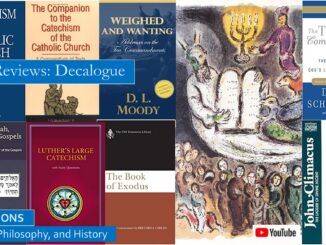
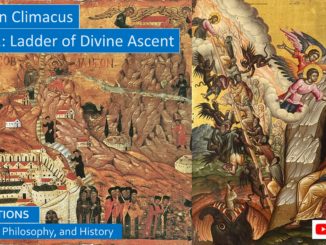
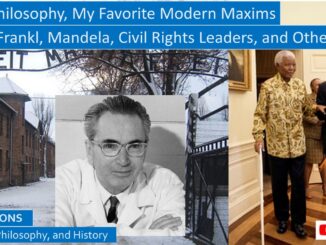
1 Trackback / Pingback